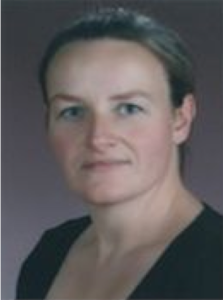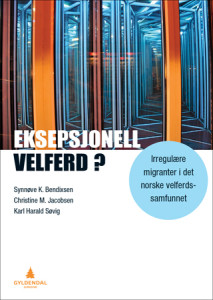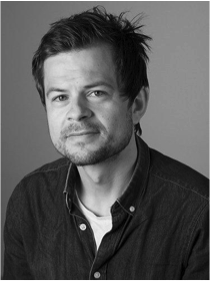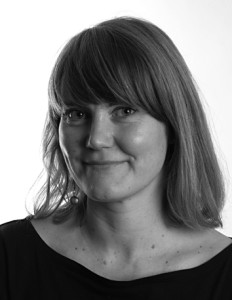 How might we think about race as a paradoxically fungible yet persistent feature of human history? This mini seminar examines race as a global phenomenon with long and diverse histories. In its migrations, conceptions of race have repeatedly been marshaled, decried, dismissed, and repurposed, reformulating conceptions of kinship and social organization along the way. From ancient empires, medieval religious conflicts, and early modern accounts of “barbarians” and “strangers” to the longue durée of colonial settlement and slavery, and from the revolutions and uprisings of the eighteenth, nineteenth, and twentieth centuries to more recent accounts of physiognomy, eugenics, and DNA, the phenomenon of race has interacted dynamically across time and space with conceptions of caste, color, class, language, identity, law, region, and religion. Our class will begin with a conventional genealogy of race as arising from the age of Atlantic Revolutions, the slave trade, and scientific thinking in Europe and the United States before complicating our understandings of the phenomenon as one shaped over centuries of contact and interchange. Our second session will examine a longer history of race and caste in relation to Iberian colonization of the East and West Indies and our third session will investigate race and the littoral in Indian Ocean studies. Registration deadline is August 8th, 2014.
How might we think about race as a paradoxically fungible yet persistent feature of human history? This mini seminar examines race as a global phenomenon with long and diverse histories. In its migrations, conceptions of race have repeatedly been marshaled, decried, dismissed, and repurposed, reformulating conceptions of kinship and social organization along the way. From ancient empires, medieval religious conflicts, and early modern accounts of “barbarians” and “strangers” to the longue durée of colonial settlement and slavery, and from the revolutions and uprisings of the eighteenth, nineteenth, and twentieth centuries to more recent accounts of physiognomy, eugenics, and DNA, the phenomenon of race has interacted dynamically across time and space with conceptions of caste, color, class, language, identity, law, region, and religion. Our class will begin with a conventional genealogy of race as arising from the age of Atlantic Revolutions, the slave trade, and scientific thinking in Europe and the United States before complicating our understandings of the phenomenon as one shaped over centuries of contact and interchange. Our second session will examine a longer history of race and caste in relation to Iberian colonization of the East and West Indies and our third session will investigate race and the littoral in Indian Ocean studies. Registration deadline is August 8th, 2014.
More info:
http://www.uib.no/skok/77000/phd-kurs-rase-migrasjon-og-slektskap
http://www.uib.no/en/skok/77008/graduate-course-race-migration-and-kinship
IMER Seminar:
Elaine Chase and Jenny Allsopp: The ‘tactics’ of time and status: Young people subject to immigration control making the transition to ‘adulthood’ in the UK
Young people who arrive in the UK from outside Europe without a parent or legal guardian are institutionally categorised according to a range of possible legal statuses and usually afforded time-limited Leave to Remain in the UK. These categorisations are associated with specific welfare entitlements which tend to diminish over time and become particularly uncertain as young people transition into ‘adulthood’. Situated within a broader research programme examining the link between migration, ‘wellbeing’ and ‘futures’, this paper examines the multiple transitions imposed on young people subject to immigration control as they approach the age of 18 and beyond, (from child to ‘adult’, from being accorded a temporary residence permit to more permanent leave to remain or from legality to ‘illegality’) and the implications for their access to various dimensions of welfare provision. The paper shows how different components of the ‘state’ have time limitations at their disposal to control access to welfare and state support according to chronological age. From young people’s perspectives, such ‘tactics’ fundamentally control their trajectories and future prospects unless they can formulate strategies of their own to counter such tactics.
Read more about Elaine Chase here
Read more about Jenny Allsopp here
Mistillitens migrasjon: Europeisk sør-nord mobilitet i kjølvannet av krisa
Tema for innlegget er den nye Europeiske sør-nord migrasjonen. Den empiriske analysen er basert på dybdeintervjuer med noen av dem som har reist fra Spania til Norge etter kriseåret 2008. Innlegget vil belyse hvordan sør-nord migrasjonen i kjølvannet av krisa er mer enn en desperat flukt fra arbeidsledighet i hjemlandet. Den vidtrekkende mistilliten til det politiske systemet og følelsen av en dyptgripende håpløshet i hjemlandet er viktige migrasjonsfaktorer i tillegg til jobbmuligheter for dem som kommer til Norge.
Susanne Bygnes (phd) er postdoktor ved universitetet i Bergen. Hun leder det fireårige prosjektet Labour Migration in Uncertain Times: Migration from Spain to Norway after 2008, finansiert av forskningsrådets VAM-program. Hun har publisert en rekke internasjonale artikler på tema som mangfold og likestilling, blant annet Ambivalent Multiculturalism (2012) i tidsskriftet Sociology.
IMER Lunch: Astrid Ouahyb Sundsbø – Social mixing policies: What You Want and What You Get
In the public debate and contemporary social policies in Norway as well as in other countries, concentrations of “immigrants” in certain areas of a city are considered to be unfortunate and something which needs to be fought against (see i.e. Gakkestad 2003; Akerhaug 2012). It is anticipated that spatial concentrations of “immigrants” enforces the social isolation of “immigrants” and triggers criminal activities, among other aspects. This becomes very obvious when a “high percentage of immigrants” in an area serves as basis for referring to that area as a “ghetto” or “insecure” (see i.e. Sæter 2005; Vassenden: 2007; cf. Akerhaug 2012).
In this lunch seminar, the idea of social mixing, which is not just common in the general public debate but also a manifested major urban policy and planning goal (Sæter & Ruud 2005; Huse, Sæter & Aniksdal 2010; cf. Musterd 2005) will be discussed. By using some illustrations both from the academic debate as well as own empirical work, it is shown that it is necessary to be critical about this concept.
It is referred to literature arguing that there is a lack of empirical evidence showing that the residential segregation of “immigrants” has any effect at all, for instance on “integration” and crime (for instance Musterd 2005; Galster 2007; Lees 2008). Furthermore, it is discussed that the imagination of social mixing as an ideal way to tackle the “multicultural challenge” might be founded on a highly problematic understanding of “immigrants“ and their norms and values as inherently “bad” (cf. Eriksen 1996: 51). This is shown by drawing on statements from interviews with members from the majority population residing in Oslo.
Astrid Ouahyb Sundsbø
 Astrid Ouahyb Sundsbø (PhD) is a postdoctoral research fellow at the Georg-Simmel Center for Metropolitan Studies in Berlin. She holds a doctoral degree in sociology from the Humboldt-University of Berlin (2012). From 2012-2014 she worked as a postdoctoral researcher at the Center for a Sustainable University at the University of Hamburg. Her main fields of research compromise: Social inequality, residential segregation in cities, migration and interethnic relations. Her most recent publication is Grenzziehungen in der Stadt. Ethnische Kategorien und die Wahrnehmung und Bewertung von Wohnorten (Springer VS, 2014) where it is discussed whether ethnic boundary making on the side of the majority population could be a possible explanation for the residential concentration of immigrants in Berlin and Oslo.
Astrid Ouahyb Sundsbø (PhD) is a postdoctoral research fellow at the Georg-Simmel Center for Metropolitan Studies in Berlin. She holds a doctoral degree in sociology from the Humboldt-University of Berlin (2012). From 2012-2014 she worked as a postdoctoral researcher at the Center for a Sustainable University at the University of Hamburg. Her main fields of research compromise: Social inequality, residential segregation in cities, migration and interethnic relations. Her most recent publication is Grenzziehungen in der Stadt. Ethnische Kategorien und die Wahrnehmung und Bewertung von Wohnorten (Springer VS, 2014) where it is discussed whether ethnic boundary making on the side of the majority population could be a possible explanation for the residential concentration of immigrants in Berlin and Oslo.
Redigert av Christine Jacobsen, Synnøve Bendixsen, Karl Harald Søvig
 Irregulære immigranter har på noen områder full tilgang til velferdsytelser, men på mange områder er tilgangen svært begrenset enten i form av rettsregler eller andre barrierer. Denne antologien undersøker forholdet mellom rettslig rammeverk, institusjonell praksis og hvordan irregulære migranter selv erfarer sin situasjon.
Irregulære immigranter har på noen områder full tilgang til velferdsytelser, men på mange områder er tilgangen svært begrenset enten i form av rettsregler eller andre barrierer. Denne antologien undersøker forholdet mellom rettslig rammeverk, institusjonell praksis og hvordan irregulære migranter selv erfarer sin situasjon. Med en unik kombinasjon av juridisk og antropologisk blikk, går boken regelverket nærmere i sømmene, drøfter gatebyråkraters utfordringer og hverdagslivet til irregulære migranter og deres barn.
Hvilke regelverk får konsekvenser for irregulære migranters levevilkår? Hvordan blir dette regelverket forstått og etterfulgt av gatebyråkrater? Og hvordan blir hverdagslivet til irregulære migranter og deres barn påvirket av regelverket og dets fortolkning?
Denne boken er aktuell for velferdsprofesjoner som møter irregulære migranter som en del av sin yrkesutøvelse. Både leger, sykepleiere, helsesekretærer, lærere, helsesøstre, skolerådgivere, sosialarbeidere, sosionomer og barnevernspedagoger vil ha god nytte av Eksepsjonell velferd? Irregulære migranter i det norske velferdssamfunnet. Boken retter seg også mot frivillige organisasjoner som jobber med ulike aspekter ved migranters situasjon i Norge og andre som er engasjert i temaet.
Susanne Wessendorf: Pioneer migrants in a super-diverse context
Urban areas in Europe and beyond have seen significant changes in patterns of immigration, leading to profound diversification. This diversification is characterized by the multiplication of people of different national origins, but also differentiations regarding migration histories, religions, educational backgrounds, legal statuses and socio-economic backgrounds. This ‘diversification of diversity’ is now commonly described as ‘super-diversity’. Despite an increasing number of studies looking at how people live together in such super-diverse contexts, little is known about new patterns of immigration into such contexts. What are the newly emerging countries of origin which add to the diversification of already super-diverse areas? Where do recent migrants from unusual source countries, who cannot draw on already existing migrant or ethnic ‘communities’, find support? And what kinds of social networks do they form? This paper discusses pathways of settlement among recently arrived migrants from non-traditional countries of origin in the London Borough of Hackney. Drawing on earlier migration literature and the notion of ‘pioneer migration’, the paper addresses the challenges of analysing increasingly fragmented migration stories and pathways of settlement in super-diverse contexts.
Thomas Hylland Eriksen: The tension between superdiversity and cultural reproduction
From a bird’s eye perspective, Alna borough in eastern Oslo definitely looks superdiverse. Scores of languages are spoken in its population of 40,000, and its inhabitants come from about as many countries. Yet at the local level, social and cultural reproduction takes place to a great extent at the ethnic or community level. As one of our informants says, ‘I sometimes feel as though I am in Pakistan’. Had it not been for the strong presence of the Norwegian state, the suburb would have resembled the plural societies described in the mid-20th century by Furnivall and Smith, where ethnic groups, like pearls on a necklace, lead parallel lives but meet in the marketplace. How comprehensive is the influence of the state; in what ways does diversity in public affect the private sphere, and what are the main elements in the cultural reproduction of minority groups?
The populist radical right has emerged as the spearhead of a larger renationalization process directed against positions of global and European integration. Based on anthropological fieldwork in the postindustrial towns of Doncaster (South Yorkshire, UK) and the Hungarian town of Ózd in 2015, the paper examines the various historical, material and socio-economic factors in the rise of Ukip (United Kindom Independence Party) and the extreme right-wing Jobbik (Movement for a Better Future).
In their politics of fear, minorities and migrants are marked as posing cultural-religious threats to communal harmony and the nation-state. Through participant observation and interviews with Ukip and Jobbik politicians and supporters, the paper examines how knowledge about ‘threatening others’ is produced, circulated and contested.
 Dr. Cathrine Thorleifsson holds a PhD in Social Anthropology from the London School of Economics and Political Science (2012). Her chief theoretical interests lie in anthropological approaches to the study of nationalism, migration, borders and xenophobia.
Dr. Cathrine Thorleifsson holds a PhD in Social Anthropology from the London School of Economics and Political Science (2012). Her chief theoretical interests lie in anthropological approaches to the study of nationalism, migration, borders and xenophobia.
Welcome! A light lunch will be served.
About the Seminar series:
Migration responses
Debating the current refugee crisis in Europe
The IMER Bergen Seminar series for the spring of 2016 will discuss a wide range of responses in the wake of the current migration crisis. How can the theoretical and empirical research currently being conducted on migration, ethnic relations, peace and conflict contribute to understanding the multi-faceted landscape of politics, boundaries and everyday lives of the refugee crisis?
Illustration: Wallpapercave
Hip hop music and the forging of civic bonds among minority youth in Norway
A vast body of research documents that media coverage of ethnic minorities in Norway is systematically imbalanced and problem oriented, which in turn engenders a sense of exclusion. At the same time, hip hop music and artists are today regular fixtures in various media formats, and a genre that comprises a number of prominent performers of multi-cultural background.
Set against the backdrop of the exclusionary effects of news media representations, this interview study of a group of minority youth makes evident that mass mediated hip hop music is for them taken to entail public representation of minority experiences and sensibilities that engender a sense of democratic inclusion.
By combining recognition theory and reception theory, Nærland shows how hip hop-related media coverage is experienced to involve a positive affirmation of minority identity that also contributes to the formation of civic identity and affinities. The study argues that musical media events constitute ‘moments of recognition’ where dynamics of recognition is intensified.
 Nærland further argues that recognition theory makes up a valuable supplementary framework for our theoretical understanding of the civic dimensions of media reception, and the role of popular music therein.
Nærland further argues that recognition theory makes up a valuable supplementary framework for our theoretical understanding of the civic dimensions of media reception, and the role of popular music therein.
Welcome! A light lunch will be served.
About the Seminar series:
Migration responses
Debating the current refugee crisis in Europe
The IMER Bergen Seminar series for the spring of 2016 will discuss a wide range of responses in the wake of the current migration crisis. How can the theoretical and empirical research currently being conducted on migration, ethnic relations, peace and conflict contribute to understanding the multi-faceted landscape of politics, boundaries and everyday lives of the refugee crisis?
Kicking off a new semester with IMER lunch seminars, our first seminar this year is building on exciting fieldwork from Bergen. Hilde Danielsen from Uni Research Rokkansenteret is giving a presentation about the symbolic value of birthday parties in contemporary Norway.
Danielsen argues that birthday celebrations have become more than a private family matter, and are increasingly seen as a socially charged question in Norwegian society. Many parents with and without migration background, as well as teachers and other actors, claim that birthday parties have the potential to create social inclusion. They are especially concerned that children with migrant background should celebrate and attend. Celebrating birthdays has seemingly become one of the litmus tests of whether an immigrant individual or an immigrant group is integrated into Norwegian society.
Note the place: Lauritz Meltzers hus (SV-bygget), room 212.
As usual, a light lunch will be served. All are welcome!
In recent years, a large number of Syrian refugees have settled in Europe. In the media, most of the debate concerning these refugees has been about how they impact their host societies. But how does this large Syrian diaspora impact politics in Syria itself?
For this IMER lunch seminar, we will be joined by Amany Selim and Espen Stokke, PhD candidates at sociology and comparative politics at UiB. They both do research projects where they explore the engagement of Syrian diaspora activists, and how these activists try to make a difference in the homeland. With their work on the Syrian case, they are hoping to contribute to the growing body of literature that attempts to bridge social movement theory and diaspora politics.
In the presentation, Selim and Stokke will give a brief overview of the field: What do we know about the activism of the Syrian diaspora? They will also present their own projects, and what they wish to add to the field.

